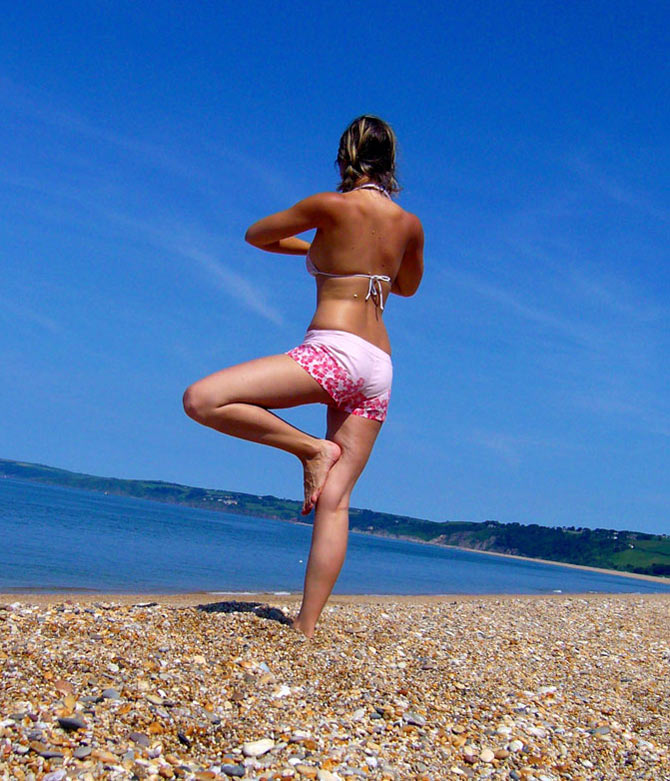 | « Back to article | Print this article |
5 benefits of stretching after exercise
Why stretch at all?
The jury is still undecided about this, with some undecided whether stretching has any use at all, or should precede or follow any intense activity. The evidence that gets thrown about seems to be coloured by the belief systems, with those against stretching believing it not so essential. But for those of us immersed in intense physical activity as a passion, the idea of not stretching is anathema.
Where would we be the next day, after any high intense activity, if we do not use stretching to relieve the contractions and tensions from our muscles. It is known that all activity, when intensified, (whether it is cleaning your house before an event, or jogging in the neighborhood park) can leave your muscles very sore indeed. The soreness can last up to two days in which time the muscles recover.
But if the activity is complimented with stretching, especially after it is over (when the resistance and reluctance to do it is also equally acute) then you can be assured that your soreness will disappear faster. You would have salvaged the days following the intense activity. This may explain why serious martial artists use stretches to heal themselves after every bout of practice or event.
Shameem Akthar, yogacharya trained with the Sivananda Yoga Vedanta Center and proprietor of Yoga Kuteer, offers a case for stretching.
5 benefits of stretching after exercise
Positive changes in muscle fiber
Stretching affects muscles at the micro level. Your muscle is made up of tiny contractile units called sacromeres. These contract and give movement to your muscles when action is initiated. Stretching works by actually increasing the number of sacromeres. It is as if you start creating and transforming your musculature by the sheer act of stretching. Regular stretching then elongates the muscles too.
All of this adds up to more efficiency from the muscle groups addressed. This is why your stretching must cover the entire body. Remember that some exercises tend to stiffen the muscles, like jogging for instance.
Over a period of time, this could have an adverse impact on your muscle group by stiffening not just your muscles (whose strengths include suppleness and flexibility) but also tighten the joints and limit the range of movements in them. Stretching therefore prevents such pitfalls.
5 benefits of stretching after exercise
Improved energy levels
As mentioned above some exercises or sports can stiffen the body, by contracting the muscles and tightening the joints through over stress. This also means that the stiff muscles act like blocked roadways to energy transmission, repairing agents that pass through the blood stream.
The removal of toxins too are hit. All of which adds up to the sense of lethargy, extreme fatigue, slower recovery from muscle soreness or even injury.
Stretching removes these "traffic jams" in the blood and allows nutrition, repairing agents, oxygen, blood sugar to reach those sites that desperately need them.
5 benefits of stretching after exercise
Better prepared
Due improves muscle efficiency, length and flexibility, a physically agile person can take the risk of any fast movement without too much of a chance of injury. The suppleness and strength of the muscles has the recoil effect to cushion the pressure of any sudden or heavy movement,preventing injury.
The muscles, joints, ligaments are supple and flexibile. This applies not only to sports persons. For instance, those who are physically unfit suffer the consequences of even casual gestures required in day to day living: such as lifting a heavy suitcase. It is quite well-known that if you are physically unfit, even this could land your wrist, shoulder or your neck in serious trouble. A fit person whose daily regimen includes stretching has no worries here, though!
5 benefits of stretching after exercise
Improved posture
Intense activity, especially when it involves only one type of movement, can severely contract muscles, shortening the leg muscles, straining the spine, rounding the shoulders, etc. However, when muscles are flexible they have greater bounce quotient, thus shifting the load in a more generalised fashion, reducing the impact of motion, and maintaining the perfect posture.
Full body stretches after running, for instance, can help in preventing the painful collapse at the lower back and knees, a common problem for most runners. Again this means improved breathing. If the spine or upperback remains sore or contracted the respiration is severely restricted.
Stretching "releases" the breath and allows you to breathe more efficiently. This boosts your overall fitness levels and makes you return to any activity with a greater comfort level and awareness.
5 benefits of stretching after exercise
Removes tension
A list of physical symptoms to stress would include sore and/or tired muscles, an awkward posture which either looks timid or overtly aggressive (in a protective response), acidity, flatulence, headaches, to name a few.
Most of these could be dealt with by stretching, to improve the flow of breath more evenly and relieve the soreness from the body. Tight muscles are naturally associated with tension.
So it is safe to assume that to relieve the tightness would be the start-up towards stress relief and tension management.





